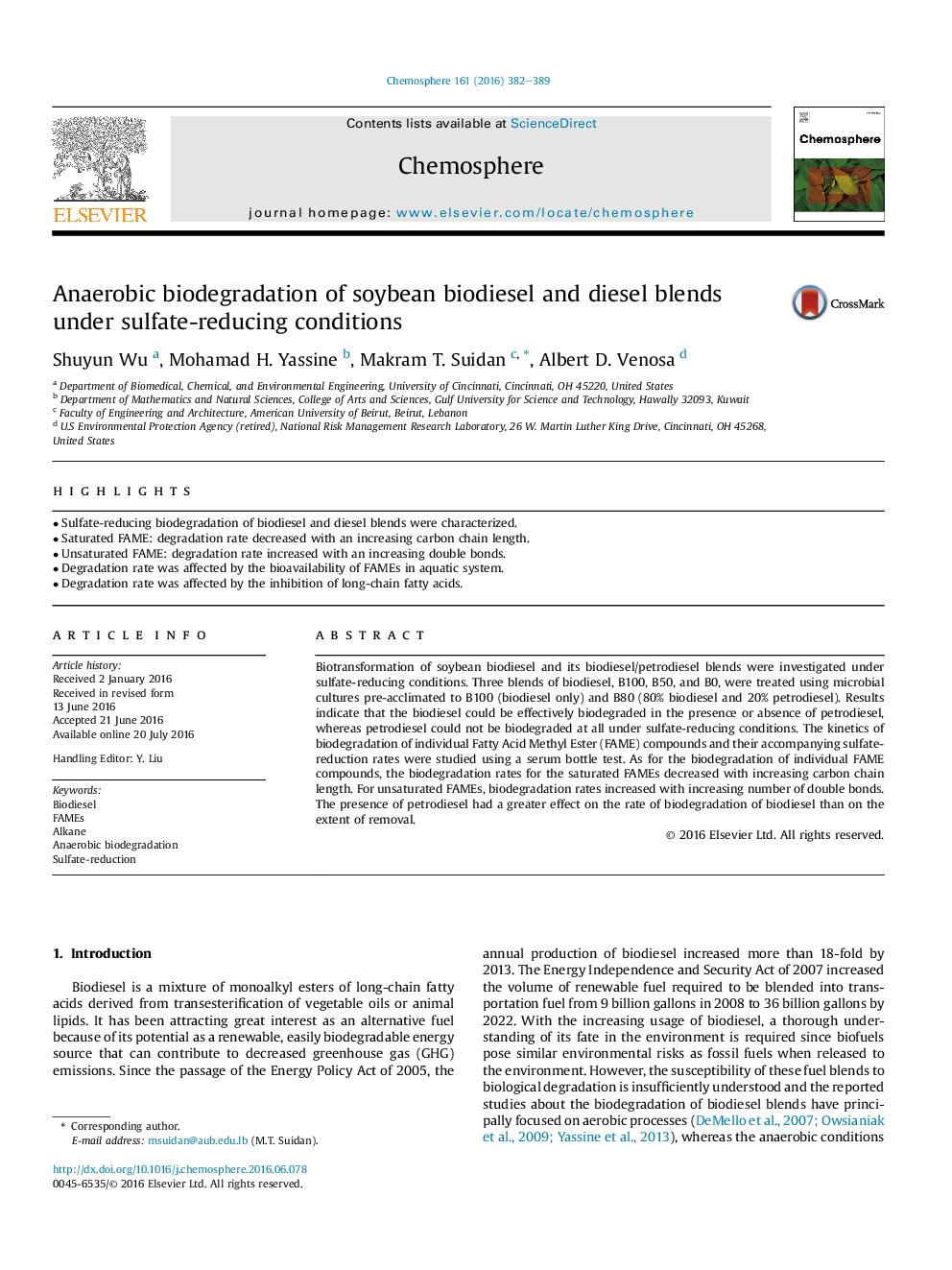| کد مقاله | کد نشریه | سال انتشار | مقاله انگلیسی | نسخه تمام متن |
|---|---|---|---|---|
| 6306589 | 1618810 | 2016 | 8 صفحه PDF | دانلود رایگان |
- Sulfate-reducing biodegradation of biodiesel and diesel blends were characterized.
- Saturated FAME: degradation rate decreased with an increasing carbon chain length.
- Unsaturated FAME: degradation rate increased with an increasing double bonds.
- Degradation rate was affected by the bioavailability of FAMEs in aquatic system.
- Degradation rate was affected by the inhibition of long-chain fatty acids.
Biotransformation of soybean biodiesel and its biodiesel/petrodiesel blends were investigated under sulfate-reducing conditions. Three blends of biodiesel, B100, B50, and B0, were treated using microbial cultures pre-acclimated to B100 (biodiesel only) and B80 (80% biodiesel and 20% petrodiesel). Results indicate that the biodiesel could be effectively biodegraded in the presence or absence of petrodiesel, whereas petrodiesel could not be biodegraded at all under sulfate-reducing conditions. The kinetics of biodegradation of individual Fatty Acid Methyl Ester (FAME) compounds and their accompanying sulfate-reduction rates were studied using a serum bottle test. As for the biodegradation of individual FAME compounds, the biodegradation rates for the saturated FAMEs decreased with increasing carbon chain length. For unsaturated FAMEs, biodegradation rates increased with increasing number of double bonds. The presence of petrodiesel had a greater effect on the rate of biodegradation of biodiesel than on the extent of removal.
Journal: Chemosphere - Volume 161, October 2016, Pages 382-389
